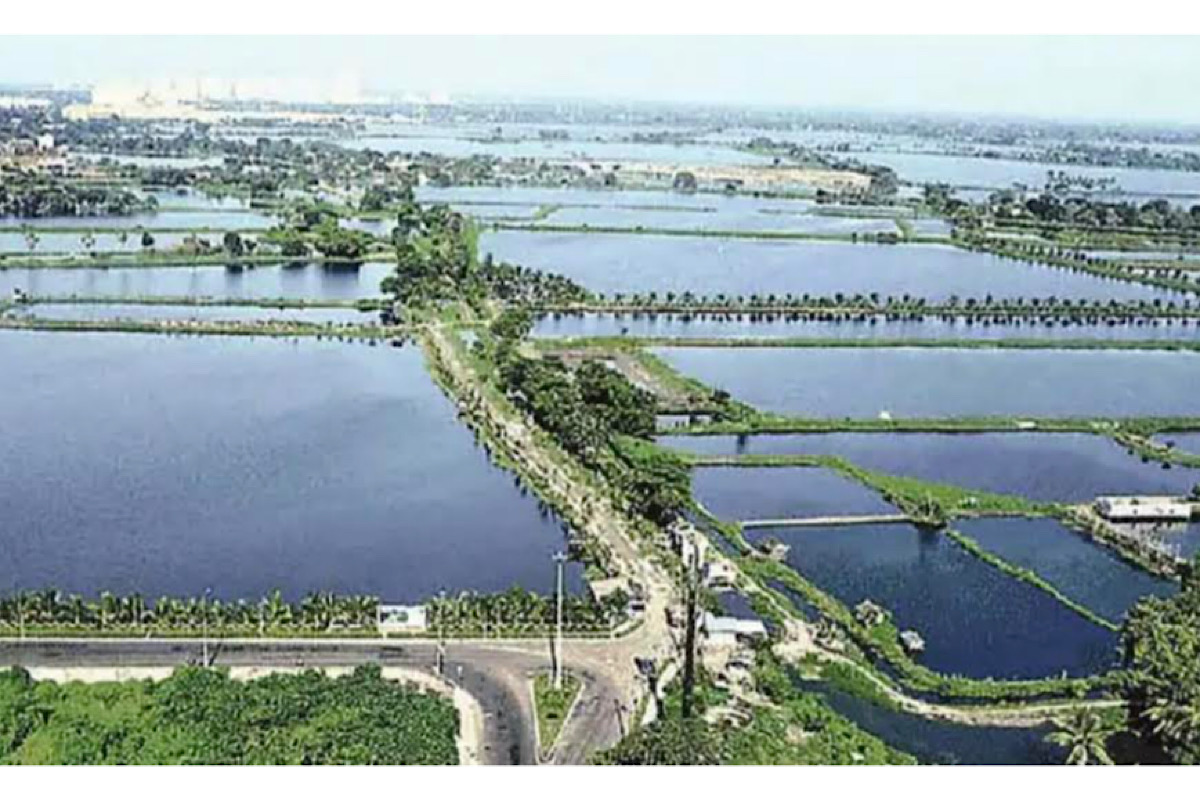Ramdev unveils natural solutions for kidney health with Patanjali
Baba Ramdev and Patanjali's experts discuss natural remedies for kidney health, introducing Renogrit and key herbs like Varun Chhal, Gokhru, and Pashan Bhed.
The East Kolkata Wetlands (EKW), often celebrated as the “Kidney of East Kolkata”, are facing severe threats from pollution and unsustainable practices.

East Kolkata Wetlands [Photo:SNS]
The East Kolkata Wetlands (EKW), often celebrated as the “Kidney of East Kolkata”, are facing severe threats from pollution and unsustainable practices. This vital ecosystem, recognized as a Ramsar site and the world’s largest wastewater-fed aquaculture system, spans 12,500 hectares on the city’s eastern periphery and plays a crucial role in supporting fish production, rice, and vegetable cultivation. Dr. Biswajit Bera, who has led extensive research on the EKW, has highlighted the dire state of this landscape. The wetlands encompass water bodies, 254 drainagebased fishing grounds covering 5,852.14 hectares, agricultural land of 4,718.56 hectares, productive agricultural areas totaling 602.78 hectares, and urban and rural settlements of 53.26 hectares.
Kolkata’s wastewater, channeled through an intricate system of underground sewers and pumping stations, ends up in these wetlands, where local fishermen use the naturally treated wastewater to sustain a unique and low-cost fish farming model. Every day, organic waste, amounting to 20 to 70 kg per hectare, is introduced into these fishponds. Sunlight facilitates photosynthesis, creating a thriving plankton population that serves as food for the fish. This process is essential for maintaining the pond’s ecosystem and converting nutrients into a form usable by humans. However, Dr. Bera’s studies reveal a troubling scenario. Kolkata generates approximately 600 million litres of sewage and 2,500 tonnes of solid waste daily, much of which is improperly treated and discharged near the EKW site. A 61 km canal system, meant to distribute this sewage to fish farmers, often carries pollutants that degrade the wetland ecosystem.
Advertisement
The use of toxic chemical fertilizers in nearby agricultural fields further exacerbates the problem. Ammonium Sulphate, Calcium Nitrate, Super Phosphate, Ammonium Nitrate, and Urea are some of the harmful compounds that find their way into the wetlands, especially during the monsoon season. Additionally, domestic, medical, and industrial wastes contribute to severe eutrophication ~ an excess of nutrients that leads to phytoplankton overgrowth and depletes oxygen levels, harming aquatic life. To address these challenges, Dr. Bera advocates for a series of urgent measures. Promoting sustainable agricultural practices, including organic farming, and ensuring proper treatment of urban sewage before its discharge into the wetlands are critical. The construction of protective dams, regular dredging of silt, replacement of high-turbidity water with fresh rainwater, and the use of phytoremediation techniques ~ using plants to clean contaminants ~ are essential steps toward restoring the health of the wetlands.
Advertisement
The EKW’s unique integration of waste management with aquaculture stands as a sustainable model that balances ecological and economic needs. However, the mounting pollution and unsustainable practices threaten its very existence. Local authorities, environmentalists, and the community must unite to implement these solutions. Protecting the East Kolkata Wetlands is not only crucial for the environmental health of Kolkata but also for the wellbeing of its residents who rely on this ecosystem for their livelihoods.
By adopting sustainable practices and investing in modern waste management technologies, the health of the EKW can be preserved, ensuring the survival of this critical ecological system. As the threats to the East Kolkata Wetlands grow more pressing, concerted efforts are required to safeguard this invaluable resource. The future of Kolkata’s environmental health and the livelihoods of many depend on the successful preservation and restoration of these wetlands.
Advertisement